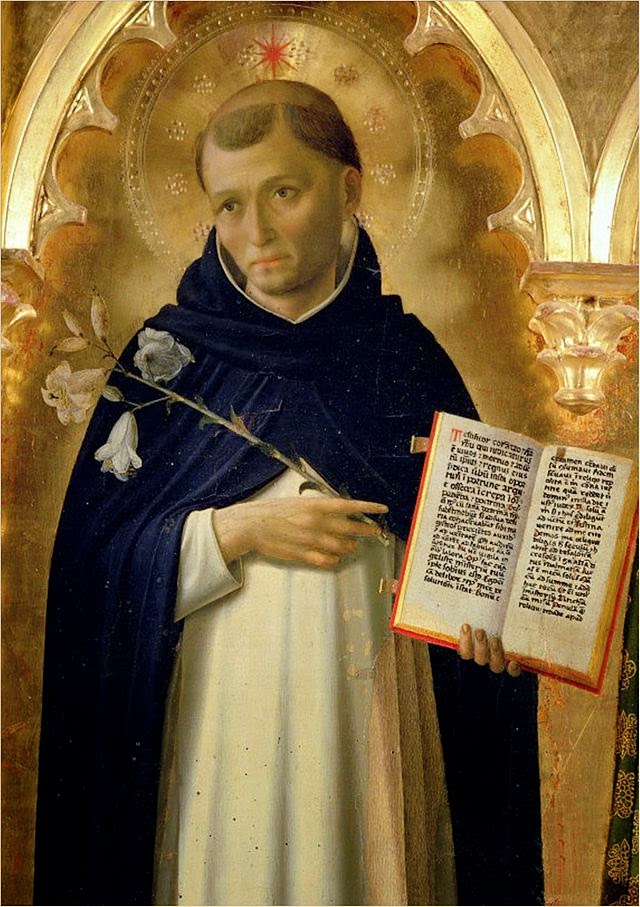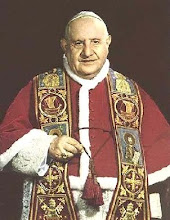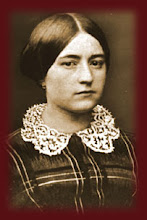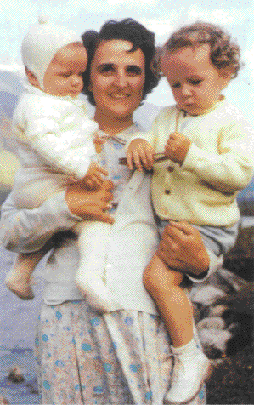I had a dream the other night about "Sull'aria," the famous Act III duet from Le Nozze di Figaro. In my dream, Susanna read back the letter the Countess had dictated to her, as in Mozart's opera; the difference was that, instead of being indignant at the Count's cruelty, and confident of the plan she is making with the Countess to entrap him, she was horrified and frightened by the danger she was putting herself into.
The dream could mean any number of things, but, of course, it could never improve upon the perfection of the opera, especially this performance, with Gundula Janowitz as the Countess and the late Lucia Popp as Susanna. I can't imagine two more humane, intelligent, or musical sopranos. Enjoy.
Sunday, June 28, 2009
"A little song upon the breeze . . . "
Friday, June 26, 2009
Michael Jackson, R.I.P.

My Intro to Music class had a lively discussion last spring (led by the most badass of my students, a six-foot-five senior in a do-rag whom I kicked out of class on one occasion for his disrespectful behavior, but whom I actually both liked and admired) about who was more important to music, Frank Sinatra or Michael Jackson. The indisputable answer: Michael Jackson was. As Sinatra himself said: “The only male singer who I’ve seen besides myself and who’s better than me – that is Michael Jackson.”
Jackson was one of those rare talents who approach genius, and his untimely death is truly shocking and tragic. An early biographer of the great nineteenth-century mezzo-soprano Maria Malibran wrote, in words that could just as easily apply to Jackson:
Daring originality stamped her life . . . her career as an artist, and the brightness with which her star shone through a brief and stormy
history had something akin in it to the dazzling but capricious passage of a meteor.
Requiescat in pace.
Tuesday, June 23, 2009
Swiftly Tilting

I have some writing assignments due soon, so I've been procrastinating as much as possible by reading lots of juvenile literature. I just finished A Swiftly Tilting Planet, the third in Madeleine L'Engle's Wrinkle in Time series, which (like her other books) was, for me, like a long, cool, delicious drink of some marvelous beverage on the most wiltingly hot summer day. The book concerns time travel undertaken to save the planet from nuclear conflagration, which, contrary to the outcome you would expect if you'd read a lot of comic books or watched a lot of the original Star Trek, in this case actually works.
This blog and its comboxes have featured some previous discussions of time travel, and sometmes I think in fact that time travel is the main theme of my writing here -- the notion of a continual traveling back and forth between the past and the present, and the implications of such journeying. As Faulkner wrote, "The past is never dead. It's not even past." This is a tricky conundrum for the convert: without the suffering and sin of the past, there would have been no conversion (as the "Exsultet" sung at the Easter Vigil says, "O happy fault that merited such and so great a Redeemer"), but in embarking upon a new life we would like to travel as lightly as possible, leaving much of the past behind. I think perhaps the main themes of this blog are 1) the fact that such leaving-behind is not possible, and 2) my struggles to weave the past into my present and future in a way that will not degrade or undermine any of these three states -- states which, if you accept the proposition that time is non-linear, can sometimes seem arbitrarily defined. In Matthew 9:16, Christ noted the folly of patching an old garment with new, unshrunk cloth, and Saint Paul explained to the Corinthians that "whoever is in Christ is a new creation; the old things have passed away; behold, new things have come." So, in turning to Christ, we are made new; but, as I've often asked in this blog, what do we do with the past?
As the historian of conversion Karl F. Morrison has written (I've quoted him here before):
Conversion is often portrayed as a positive event, a turning toward. It also has a negative aspect, a turning away. The event of formal adhesion [to the new faith] may consist of this flight toward the future and from the past. But . . . . the old life overshadows the understanding of the new. The event may produce a transformation; but something resistant to change informs understanding it, and retention of the old may indeed have been a condition without which there could have been no change.
This came to my mind the other morning, when I turned on the radio and heard the opening strains of Ravel's String Quartet, which I've also written about here before. I wondered if I would be able to hear it without breaking down or resorting to the destructive dodge of replacing the present with the tantalizing memories of the past for which that evocative music was the soundtrack. While I never in my wildest dreams imagined I'd hear the quartet while clipping coupons at my kitchen table in Appalachia, I managed to get through it all right somehow.
Saturday, June 20, 2009
Sorely Trying

Father came home feeling tired and weary. He had had a sorely trying day. When he opened the front door, he saw that . . . . [all] of the children were striking one another and speaking unpleasantly in loud, harsh voices . . . . "My goodness," said Father to Mother, "is this the sort of welcome I get after a sorely trying day?"
Thus begins my new favorite book, The Sorely Trying Day by Russell and Lillian Hoban (better-known for their Frances series), which was a felicitous find at the local library. In case you can't find it at yours, those sympathetic souls at the New York Review of Books Classics are going to bring out a new edition of the book, originally published in 1964, next year.
Thursday, June 18, 2009
On Compunction

My friend Betty Duffy has a thoughtful post up about what she sees as the deficiencies of modern Catholic writing and the corresponding conundrum that Catholic writers often find themselves in. A quote:
As anyone who has been Catholic for longer than the duration of a weekend retreat knows, for many of us, initial conversion is exactly where a lot of our problems begin. We have family members who don't understand, relationships torn asunder, or worse, relationships are no longer possible with certain people. There are moral conflicts with jobs, temptations, and times when we fail to live up to our creed . . .
As writers, we want to attract people to our faith by blatantly evangelizing readers or presenting a pretty picture. But when we fail to give up the conflicts that comprise our Orthodox Catholic lives, we also give up the stories that are uniquely ours . . .
The best Catholic authors seem to say, "Yes, God is present, but you will have to find your own way to him." They can give you hints, weave a little story that enigmatically points to God, a lamb in wolf's clothing, but stop short of saying, "I'll take you to him."
While I am by no means a professional "Catholic writer," this is an unabashedly Catholic blog. As such, it's been faulted by some professed Catholic readers for failing to describe a conversion with a "happy ending," and for instead providing what one commenter called a "destructive witness" in my position as a penitent who continues to mourn for my sins. I think of this criticism as being particularly rooted in this time and place, that is, in a Calvinist culture which embraces across creeds the myth that if you do the right things you will get what you want. This may be true insofar as what you want is heaven, but, as for temporal happiness, not so much. The compunction that is a big part of my life is actually a fruit of my conversion, and it began in the early days with the gift of tears at the Consecration (I know from my Orthodox friends that the gift of tears is quite common in the Eastern church). I'm still trying to work out how to understand compunction in light of St. Paul's exhortation to "rejoice in the Lord always." I believe some people can best serve the Lord when they are happy, but that others, like Blessed Ève Lavallière, seem to serve him best in contrition. Where I am on that spectrum I do not yet know for certain.
Today, however, is the feast day of Saint Ephrem the Syrian (above), the great doctor of the Church, who wrote eloquently and extensively about the need for and uses of compunction:
The soul is dead through sin. It requires sadness, weeping, tears, mourning and bitter moaning over the iniquity which has cast it down . . . Howl, weep and moan, and bring it back to God. . . . Your soul is dead through vice; shed tears and raise it up again! . . . . Behold, Mercy waits for your eyes to shed tears, to purify and renew the image of the disfigured soul. . . . Weep over your soul, sinner, shed tears and raise it up again. Its resurrection depends on your eye, and its return to life on your heart.
He is also said to have written:
Be kind to everyone you meet, for everyone is fighting a great battle.
May Saint Ephrem the Syrian pray for us in our daily struggle for true conversion.
Saturday, June 13, 2009
Absolutely Wonderful!
I'm thrilled to have come upon this brief radio recital of Brahms songs performed by the great German soprano Lotte Lehmann in 1941. The performance is interspersed with Mme. Lehmann's charming and informative synopses.
Lehmann was distinguished not only for her Lieder singing, but also for her interpretations of Wagner, Strauss, and Leonora in Beethoven's Fidelio; in fact, she was one of the few singers in recorded history who excelled equally in opera and Lieder. She emigrated to the United States in 1938, not because she was Jewish (she wasn't), but because, in spite of the fact that she was categorically opposed to Nazism, she was being recruited to be "soprano of the Third Reich." In America, she took citizenship, and became known as a prominent anti-Fascist. In later years she was renowned for her teaching.
Enjoy!
Friday, June 12, 2009
"In Brooklyn that day, it was the Liberation of Paris . . . "

My father, who grew up watching the Dodgers play in Ebbets Field, told me about something that happened to a boyhood friend of his. This friend, who grew up to become a classical musician, was taken by his father to the jazz club Birdland in October of 1955 to hear Count Basie and his Orchestra. The Dodgers had just won their legendary World Series against the hated Yankees, and Basie came onto the stage wearing a Brooklyn Dodgers baseball cap. Then, as he sat down at the piano, all his band members reached under their chairs in unison, pulled out Dodgers caps, and put them on. My father's friend called it one of the greatest moments of his entire life, before or since.
By the way, I noticed on the Birdland website that the great Kurt Elling will be appearing there next week. I wish I could be there.
The quote in the title is by Pete Hamill, who said, "In Brooklyn that day, it was the Liberation of Paris, V-J Day, and New Year's Day all rolled into one." The headline in the Daily News refers to the old Dodgers slogan "Wait 'Til Next Year!"
Thursday, June 11, 2009
Please Pray
We were marveling at the kindness and generosity of all of our friends and family and how we realize that this great peace is directly associated with all of the prayers. We are also conscious of the fact that despite Christine’s suffering with these two difficult diseases that she has shouldered for many years, there is a plan in all of this that has God’s hand in it. It is often said that the Lord works in mysterious ways. Perhaps to us, these ways are mysterious. But He know exactly what He is doing.
So why is our adorable Christine dealing with all of this (and so gracefully, if you don’t already know)? We have surmised that everybody who is reading this blog, and the [others who have] sent correspondences are all playing a part in [an] unraveling plan for increased faith. People are expressing themselves freely on a public website about prayer. Impressive. I think that there are folks out there who will be persuaded to begin to reestablish that spiritual communication, whether it just begins with “Thanks, Lord” or becomes as elaborate as a rosary., just because of these public assertions that are visible and out there. That’s fortification right there. The love that has been expressed for Christine and our family has been awe-inspiring. This great pronouncement and outpouring of love and prayer has allowed us to relax and has set out minds at ease. It has also, most importantly, increased our faith. The point is that somewhere along the line in this complex process, faith is growing and flourishing.
May we all know the joy of seeing our sufferings work for others' good.
Tuesday, June 9, 2009
Sweet, Sweet Home

Today is the birthday of John Howard Payne, the actor who wrote the lyrics for one of the most famous English songs of the modern era, "Home, Sweet Home," about which the Scottish journalist and poet Charles Mackay said:
[It] has done more than statesmanship or legislation to keep alive in the hearts of the people the virtues that flourish at the fireside, and to recall to its hallowed circle the wanderers who stray from it.
The song is in fact an excerpt from Sir Henry Bishop's opers Clari, or the Maid of Milan, which premiered at Covent Garden in 1823. This is probably my favorite recording of it, by the incomparable Amelita Galli-Curci in 1917.
The lyrics:
Mid pleasures and palaces though we may roam,
Be it ever so humble there's no place like home!
A charm from the skies seems to hallow us there,
Which, seek through the world, is not met with elsewhere:
Home! Home! sweet, sweet Home!
There's no place like Home!
There's no place like Home!
An exile from home splendor dazzles in vain
Oh, give me my lowly thatched cottage again,
The birds singing gaily that came at my call,
Give me them with the peace of mind dearer than all.
Home! Home! sweet, sweet Home!
There's no place like Home!
There's no place like Home!
Thursday, June 4, 2009
Emptying Sorrow

This morning my three-year-old was crying about a helium balloon that he lost at the Memorial Day parade, and it crossed my mind to worry that he may have inherited from me a long memory for sorrow. I began to wonder what the uses of sorrow might be. Sorrow can be an effective teacher, but is rarely a compassionate one, and I can see in my own life how it can settle over you like a gossamer veil, subtly coloring everything you see and do.
While sorrow is a necessary ingredient in penitence, it must be tempered through long reflection into something else, even, perhaps, into its opposite. The desolation that God allows us to descend to gradually becomes filled in with other things. Even if we accept the proposition that time is non-linear -- a proposition which, if we believe in God, we are on some level required to accept -- and that thus all things, including the dreadful and the sorrowful, are happening now, we are not required to mourn forever. The Bible prescribes a period of mourning for the bereaved, staggered into three phases: seven days for what's known as shiva, followed by thirty days, and an additional eleven months if one is mourning a parent. But even David, when his first son with Bathsheba died, "arose from the earth, and washed, and anointed himself, and changed his apparel, and came into the house of the Lord, and worshipped," explaining, "While the child was yet alive, I fasted and wept: for I said, Who can tell whether God will be gracious to me, that the child may live? But now he is dead, wherefore should I fast? can I bring him back again?" and soon after, conceived Solomon with his wife.
We cannot bring back the dead, including those who have died to us figuratively, and perhaps, when our prescribed period of mourning has passed, we are required to take up the hard work of our lives again in joy. We must drop everything, including sorrow, to imitate the kenosis of Christ and receive His sometimes strange and ineffable healing. The poet Jane Hirshfield writes, in a poem called "Late Prayer":
Tenderness does not choose its own uses.
It goes out to everything equally,
circling rabbit and hawk.
Look: in the iron bucket,
a single nail, a single ruby
all the heavens and hells.
They rattle in the heart and make one sound.











